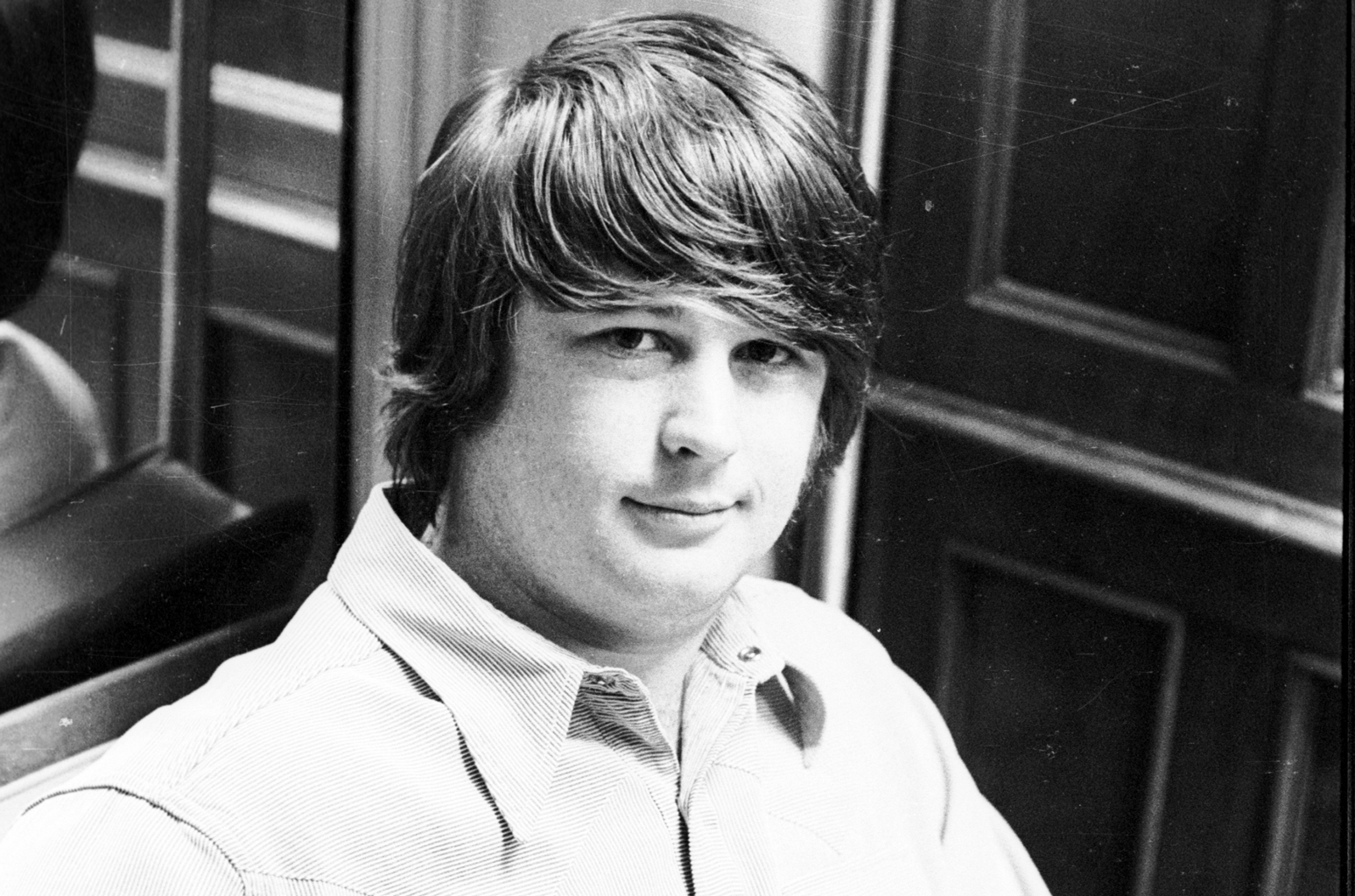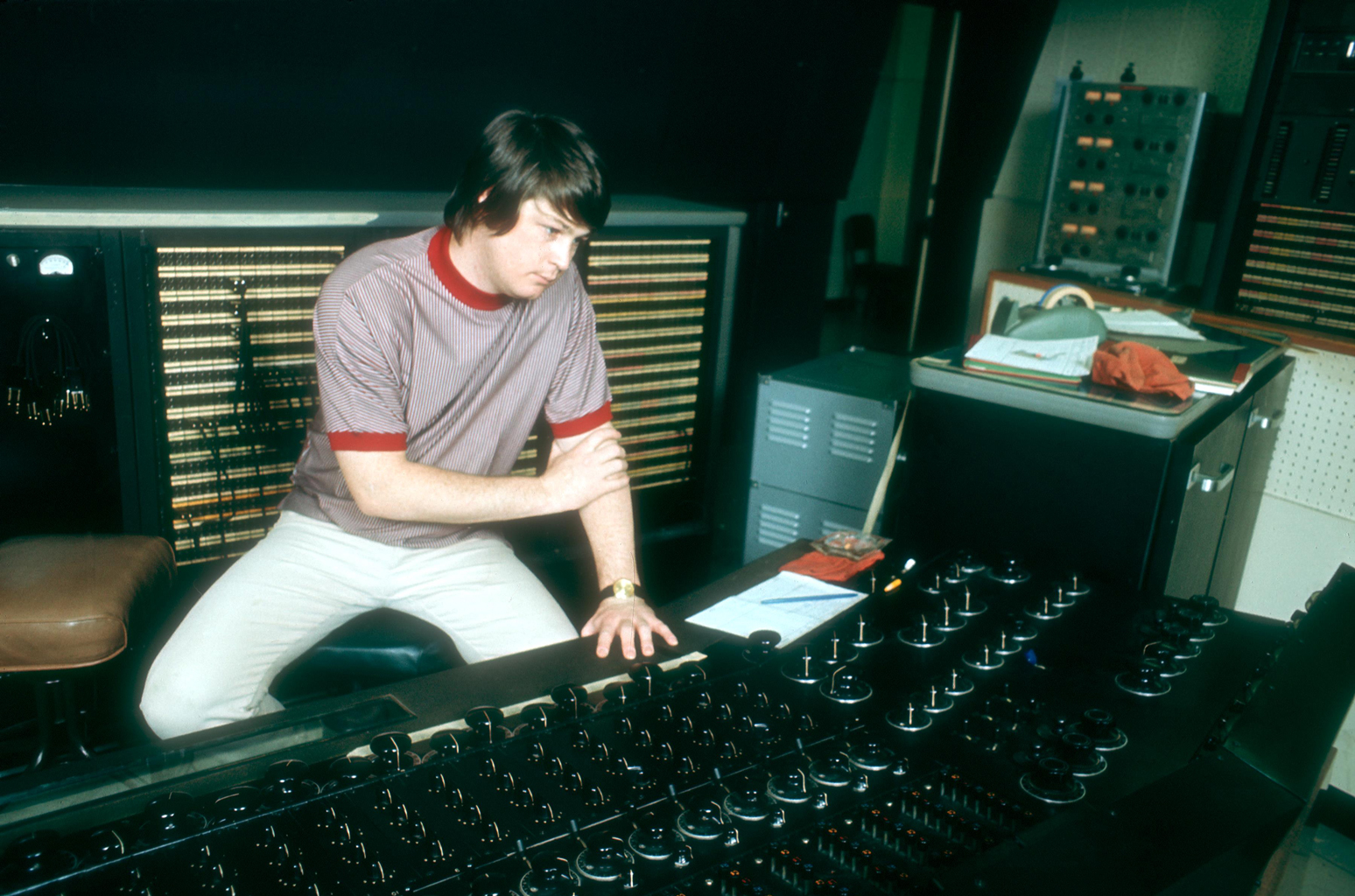Entertainment
Tracy Chapman on Revisiting Her Self-Titled Debut Album, 37 Years Later: ‘I’m Just So Proud of It’

Upon the arrival of Tracy Chapman’s self-titled debut on April 5, 1988, Billboard heralded the album as filled with “rich, haunting music,” praising both Chapman’s “husky, forceful voice” that “recalls Phoebe Snow and Joni Mitchell” and her poignant writing that tackled racism, injustice and an aspirational yearning for a better life.
Bolstered by first single “Fast Car,” the now-classic album has gone on to sell more than 20 million albums worldwide, and Chapman was recently introduced to a new generation of fans through country superstar Luke Combs’ 2023 “Fast Car” cover that topped Billboard’s Country Airplay chart for five weeks.
Chapman and the album’s producer, David Kershenbaum, had long been looking for a reason to revisit the seminal set on vinyl as the milestone anniversaries rolled by and, finally, the right moment arrived. “We might have talked about it at 25 years or 30 years, and then it just seemed like, ‘OK, this is a moment to do it because people have this renewed interest in vinyl and obviously this record was so extremely important to me and my career as a songwriter,’” Chapman says of the 35th anniversary.
Though widely available on streaming services, Chapman’s record collector friends were telling her that the original Elektra Records album was hard to find on vinyl, and even she was running short on copies— so much so that on the occasions Chapman wanted to revisit the album, she would listen on CD to keep from wearing out her few remaining vinyl copies.
So Chapman wrote a note to the president of the label: “I said I wanted to make a faithful reissue. I wanted it to sound as good or better than the original and to look like the original.”
The reissue, which came out Friday (April 4) via Rhino, overshot the 35th anniversary by two years, but that’s because she and Kershenbaum put so much meticulous care into the new version that it took way longer than they expected when they started in 2022.
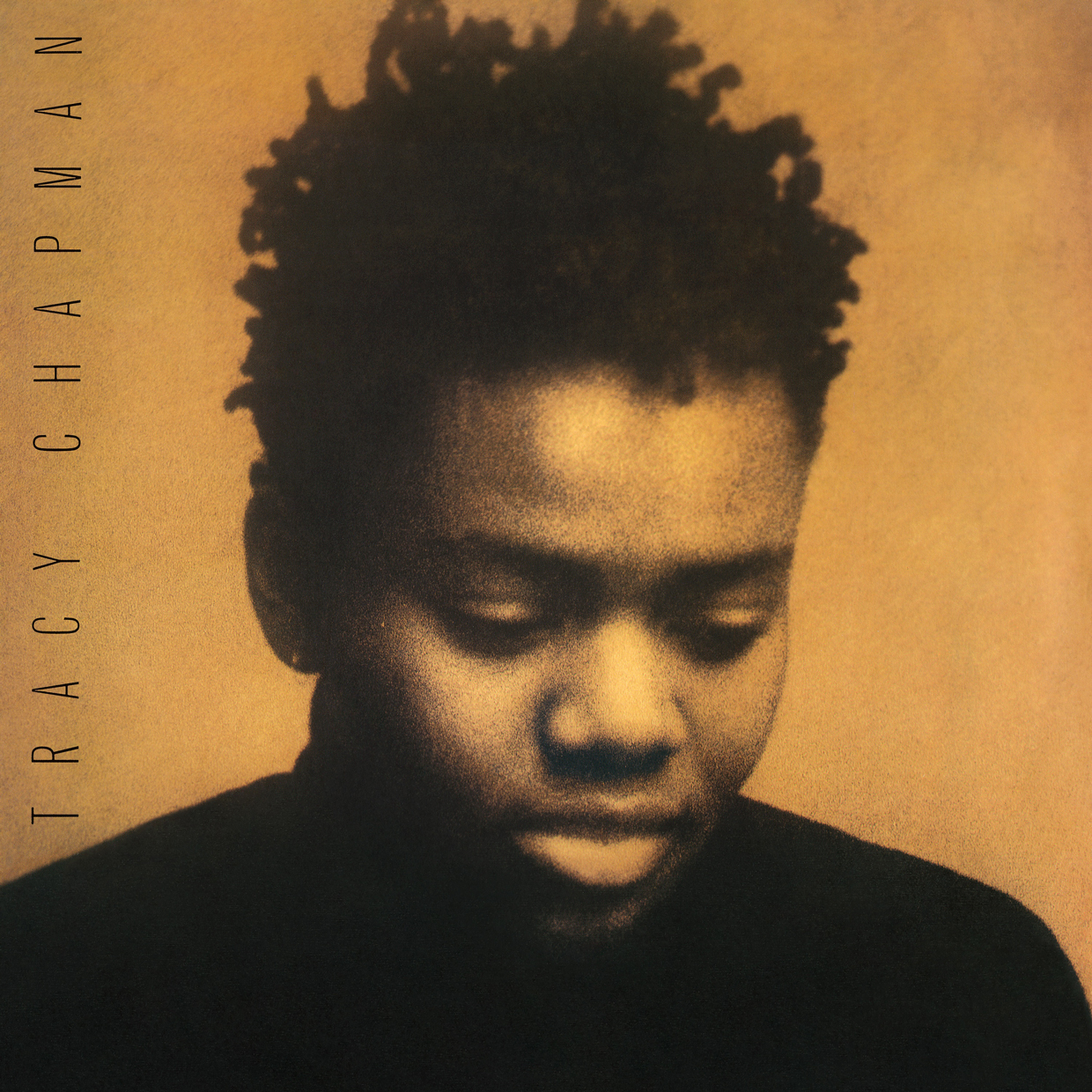 Tracy Chapman, ‘Tracy Chapman’
Tracy Chapman, ‘Tracy Chapman’
Three decades later, Chapman unabashedly says she “loves the record. I mean I’m not unbiased,” she says with a laugh. “I’m just so proud of it. I was [proud] the day that we finished it and in the days when we were making it. It holds up for me. I have a lot of positive feelings about the whole process. Then what was created and then now, what [we] managed to achieve by bringing it back.”
In their first ever interview together, she and Kershenbaum display an easy rapport with evident respect, affection and trust as they revisit creating the original album and working together on the reissue. The intensely private Chapman, 61, rarely gives interviews, but throughout the nearly hourlong telephone conversation, she is upbeat, warmly engaging and thoughtful.
As the well-known story goes, Chapman was attending Boston’s Tufts University in the mid-‘80s and playing in local coffeehouses when she was discovered by fellow student/future A&R executive Brian Koppelman, who played a tape of her music for his father, Charles Koppelman, then-co-owner of music publishing company SBK Songs. That led to Chapman signing with Elektra when she was in her early 20s.
But recording her debut album got off to a rocky start. Alex Sadkin, the initial producer Elektra paired her with, died in a July 1987 car accident before they began recording, and a subsequent effort wasn’t the right fit. “I was put into a studio with really great musicians, and it just didn’t work because it was just too much for me and too much for the songs. I was being overwhelmed,” says Chapman, who had never played her own songs with other musicians and had very little experience playing music with other people at all. “I was briefly in a little cover band in my dorm. We only had two songs that we never played out and I was playing drums,” she says with a chuckle.
By the time she met Kershenbaum in SBK’s conference room, “I was worried at that point,” she admits. “I had a couple of false starts.” But Kershenbaum, who had worked with artists including Cat Stevens and Joan Baez, had already heard seven of Chapman’s songs and was in. Then, at their second meeting, Chapman played Kershenbaum a tape of the achingly sad “Fast Car,” and he was “totally blown away,” he says. ”It was perfect in every respect: from the emotional message, the lyric, the fact that everybody has a situation sometime in their life they would like to get in a car and just drive away,” he says. “It was the strongest thing that I probably ever heard in an initial demo.”
Though Chapman had spent virtually no time in a recording studio, Kershenbaum remembers her seeming “incredibly confident, a rock,” as they recorded over eight weeks at his Powertrax Studio in Los Angeles.
Chapman attributes that self-assurance to Kershenbaum. “He made me feel so comfortable and he was supportive from the beginning,” she says. “[Previously] I was feeling like ‘Nobody’s really listening to me.’ We had good communication from the start. He understood what I was doing musically, and he didn’t want to change it.”
That included recording the album live with all musicians playing together instead of the more conventional method of recording each instrument at a time.
“It was unorthodox the way we approached it, where we tried different bass players and drummers with Tracy’s guitar and vocal. And it was just a natural evolution,” Kershenbaum says. Ultimately, he selected drummer Denny Fongheiser and bassist Larry Klein.
“Many times, they are all that’s playing along with Tracy. It’s a third of the record,” he says. “So I had to be careful that they were really supporting what she was doing and not distracting because she had to be at the forefront of this.”
The studio became Chapman’s safe haven. “When the record company flew me to Los Angeles, it was the first time I’d ever been there,” she says. “They put me up in one of these [corporate] hotels. I was totally by myself, no manager, no assistant, no family. [The studio] was my social life, my work life, that was everything [while] we were making the record, and [David] made me feel so welcome and so comfortable and so cared for in the process.”
The pair knew the album would open with “Talkin’ Bout a Revolution,” a call for social change that Chapman wrote when she was 16. “To me, it was obvious that that was our starting point,” she says. “It’s the introduction, in a way, to everything else that follows. It alerts you that these are serious songs that are on the way. We didn’t try to hide that song, which I think certain people might have been inclined to do because of the subject matter.”
Across the set, she was fearless in tackling domestic abuse on the chilling, a cappella “Behind the Wall,” racism on “Across the Lines” and class warfare on “Mountain o’ Things.”
Even though Chapman was an unproven new artist, the label took a hands-off approach. “We never really even saw them or heard from them until we started sending finished stuff,” Kershenbaum says.
Chapman also felt free to create without commercial expectations, in part because her largely acoustic, weighty songs were so far removed from the bouncy pop delights like George Michael’s “Faith” and Rick Astley’s “Never Gonna Give You Up” dominating radio.
“I have to credit [then-chairman of Elektra] Bob Krasnow, who signed me,” she says. “Right away, he was a champion, and he never talked to me about changing anything.”
The only conflict with the record label came after “Fast Car” was picked as the first single and Elektra said the 4:57 album version was too long to receive radio play. Chapman initially refused to allow an edit. “I was adamant that we couldn’t cut any of the lyrics,” she says. They compromised by deleting some of the instrumental turnarounds, shortening the radio and video versions to 4:27, which was still longer than the average radio tune. The song reached No. 6 on the Billboard Hot 100.
After the album came out, Chapman was thrust into a dizzying array of live gigs with musical superstars, filling in for a delayed Stevie Wonder at Nelson Mandela’s 70th birthday tribute concert at Wembley Stadium; joining the Amnesty International tour with Bruce Springsteen, Sting and Peter Gabriel; and opening for Bob Dylan (who wished her happy birthday via X on March 30).
Tracy Chapman went on to earn six Grammy nominations for the 31st annual Grammy Awards, with Chapman taking home trophies for best new artist, best pop vocal performance, female, and best contemporary folk recording.
Despite the Grammys declaring the collection a folk album and critics and fans labeling her a protest singer because of her issues-oriented, acoustic-guitar-based songs, Chapman has never seen herself that way.
“There was no folk scene that I’m aware of in Cleveland in the ‘70s. Maybe there was, but not one for an 8-year-old black girl,” she says. “It’s the acoustic guitar part that I think often makes people put me into the folk category. It is not a label I choose for myself, and I’m not really interested in looking at genres in that way. I’ve always loved all different kinds of music.
“I actually grew up listening to mostly R&B and soul music and gospel music and some jazz and rock & roll because that’s what was on the radio,” she continues. “I was a huge fan of Casey Kasem and his Top 40 Countdown. I used to record it on a little steno recorder so I could listen back.”
She credits picking up the acoustic guitar when she was 8 to watching the country variety show Hee Haw, a staple in homes across America in the early ‘70s on Saturday night. In addition to corn-pone sketches about rural life often with country comedian Minnie Pearl or a bevy of scantily clad beauties nicknamed the Hee Haw Honeys, the series featured stellar musical performances helmed by virtuosos like Roy Clark and Buck Owens.
“My mother loved the show, and so whatever she liked to watch on television, we watched too,” she says. “Buck Owens on the acoustic guitars. I think I fell in love with the instrument when I heard it on that show.”
Chapman asked her mom to buy her a guitar and “even though she didn’t have a lot of money, she managed to pick up one for me,” she says. Chapman taught herself how to play from books she checked out of the library and a class at the Boys & Girls Club.
By the time Chapman performed “Fast Car” with Luke Combs at the 2024 Grammys, 35 years after she first played the song on the 1989 Grammys, she and Kershenbaum were already hard at work on the reissue. (“I was quite weepy after, for some time,” she says of appearing on the Grammys with Combs. “Not so much from having played the song, but from the emotional experience of it all and also reuniting with Denny Fongheiser and Larry Klein. That was also very emotional. We were all crying at rehearsal.”)
Their reissue work had begun nearly two years earlier after they unearthed engineer Bob Ludwig’s original master of the album in the Warner Music Group archives, from which engineer Bernie Grundman created a lacquer to make a new master to press the new vinyl.
As the pair proceeded, Chapman took a vinyl copy of the original that she had never opened to use as a reference guide for the artwork and the sound quality “because it had no scratches, no dust, it had never been played,” she says.
They were zealous about their faithfulness. Through ever step “we would compare what we were doing now with what we had originally because we wanted people to be excited about it, not disappointed,” Kershenbaum says. That proved challenging because technology had advanced with different machines and methods since manufacturing the original. “[We were] going back and forth between” the new and old versions, “trying to make sure that what we were doing was as good or hopefully better than what we had,” he says.
The process was not without its disappointments. They reviewed test pressings for distortion and other flaws, giving feedback to the pressing plant in Germany. “There was a perfect test pressing the second time around and there was a speck of dust or something [causing] a huge pop on one of the songs and so the whole thing was ruined, which was unfortunate,” Chapman says.
They were just as painstakingly exacting with the artwork, including the stunning cover photograph by Matt Mahurin.
“We discovered as we started getting into the process that the record plants now don’t have a standard size for the cover,” Chapman says. “If we had reproduced the cover at either a larger or smaller size, it would have distorted as a photo. It would have made my chubby cheeks even chubbier.” Ultimately, Optimal Media in Germany created a new die that would match the size and scale of the original cover.
They were also slowed by international shipping delays and COVID precautions, leading to missing the actual 35th-anniversary deadline.
“It did take longer, but I’m really, really pleased with how it all ended up because we were just trying to get it right,” Chapman says. “I was disappointed to miss that actual milestone, but I think I would have been a lot more disappointed to have put something out that we all didn’t feel was 100% as good as it could be.”
All these years later, Chapman says the vivid, sympathetic characters she created on the album still live with her. “On a practical level, I’ve never really thought about, say, writing a song to continue the story of any of these characters in particular. But I think they are representing something emotionally for me, even if it’s not my own personal life story, that is still true for me now. I still have these feelings that you still want to find a sense of belonging. It’s a feeling that doesn’t necessarily go away.”
Chapman, who hasn’t toured since 2009, has no plans to play live again, but doesn’t rule it out. “If I were to tour, I would tour for something new, new material, and in that process, I would, of course, play these songs, too. But that would be the thing that would be most interesting to me at this point. And that’s always the case. Whenever someone asks, ‘What’s your favorite song?’ It’s always the one I’m writing at the time.”
And yes, that does mean she is writing. Though she hasn’t released an album of new material since 2008’s Our Bright Future, Chapman stresses that she’s never stopped. “I said it before, but maybe no one believed it, that I’m always playing and I’m always writing songs. I’ve been doing it since I was 8 years old. It’s just part of my DNA. It’s part of who I am.”
Entertainment
Tim Dillon Fired From Riyadh Comedy Festival for Saudi Slavery Remarks: ‘They Didn’t Like That’
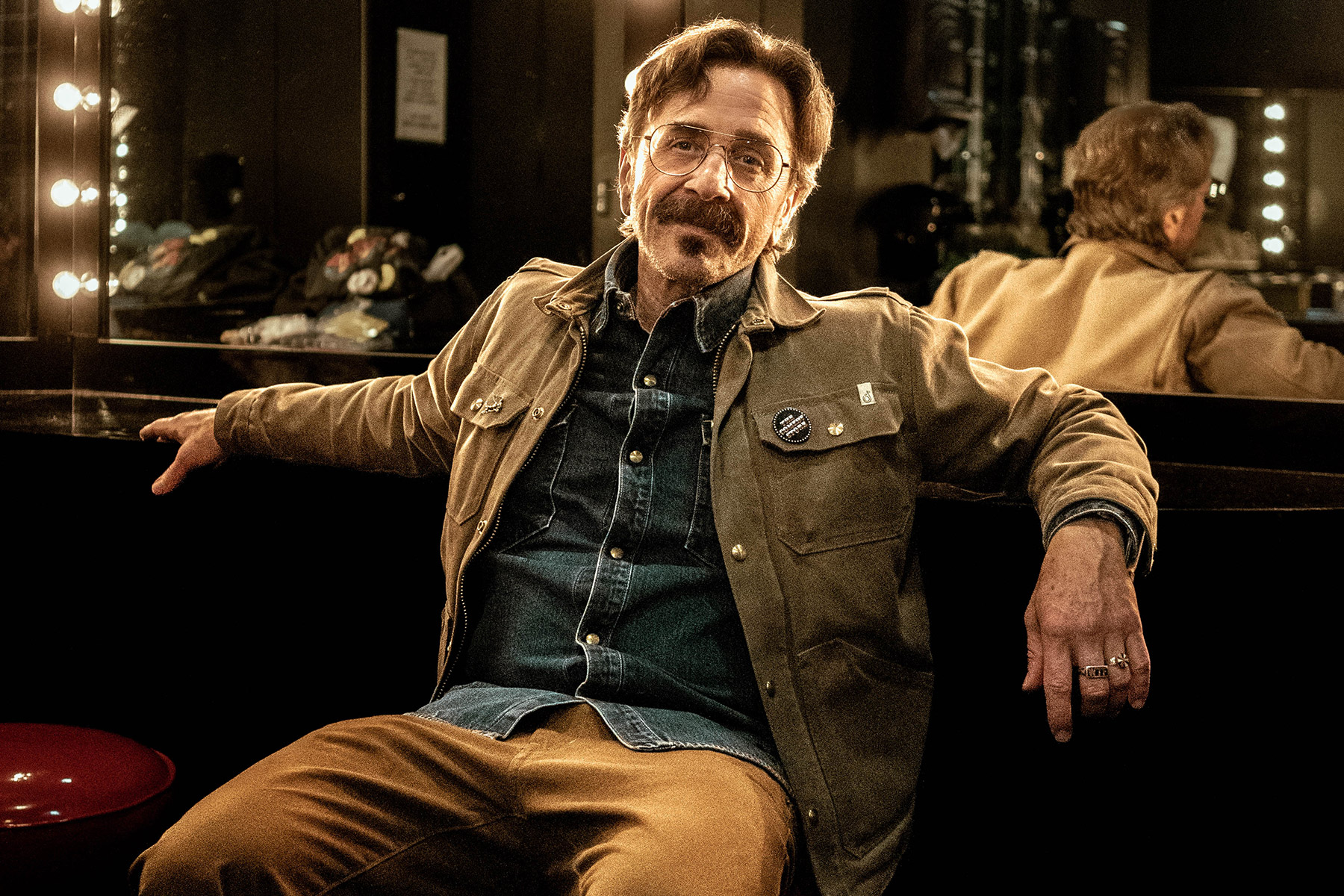
Tim Dillon will not be traveling to the Riyadh Comedy Festival next month. The California comedian and host of The Tim Dillon Show podcast says he was fired from the Oct. 8 Saudi Arabia festival for comments he made about the country on Joe Rogan‘s podcast.
Besides losing a $375,000 payday (an amount Dillon confirmed to Rogan), he also lost a nearby warm-up gig in Dubai two nights before his Riyadh appearance after mixing up the Arab emirate with Abu Dhabi (the rival cities are both part of the United Arab Emirates).
“I mixed them up — apparently this is a big deal over there. This is a real problem,” he said on a recent episode of his podcast. “This is not a malicious slander. It’s a mistake.”
The Riyadh Comedy Festival — which mostly takes place at the Bakr Al-Sheddi Theatre and ANB Arena from Sept. 25 to Oct. 9, features a number of top tier comedians including Dave Chappelle, Bill Burr, Gabriel Iglesias, Aziz Ansari, Kevin Hart, Jeff Ross, Chris Distefano, Tom Segura, Jo Koy, Sam Morril, Hannibal Buress, Andrew Schultz, Sebastian Maniscalco, Whitney Cummings, Jimmy Carr, Louis CK, Pete Davidson, Russell Peters and Chris Tucker.
“Supposedly, MBS is a fan of mine,” Dillon said two weeks ago on the Joe Rogan Experience podcast, referring to Saudi head of state Mohammed Bin Salman.
Dillon was reportedly fired from the festival for claiming that Saudi Arabia relies on slave labor — a controversial take on the country’s foreign laborers laws that some groups, including Human Rights Watch, have criticized as “slavery-like.” Legally, slavery was abolished in the Kingdom in the 1960s.
Dillon said the slavery jokes were a misunderstanding with his Saudi hosts, saying on his podcast, “I was defending them for having slaves. I literally said, ‘Slaves are hard workers and for the most part agreeable.’ But they didn’t like that.”
“You can literally support somebody too much,” he added. “In life, this happens. Too many compliments; too much support — and then they turn on you.”
He clarified his comments further, noting, “If i was a slave — not that I want to be one, but if I was and I built this really nice thing, I might say to my slave children, ‘Daddy built that,'” concluding, “Apparently this got to the people in Saudi Arabia and they were unhappy about it.”
The Riyadh Comedy Festival opens Sept. 25 with performances by Burr, Maz Jobrani and Andrew Santino and Bobby Lee from the Bad Friends podcast. More here.
Entertainment
Wilson Phillips, Kenny Loggins & More to Perform at Charity Concert Honoring Brian Wilson & The Beach Boys
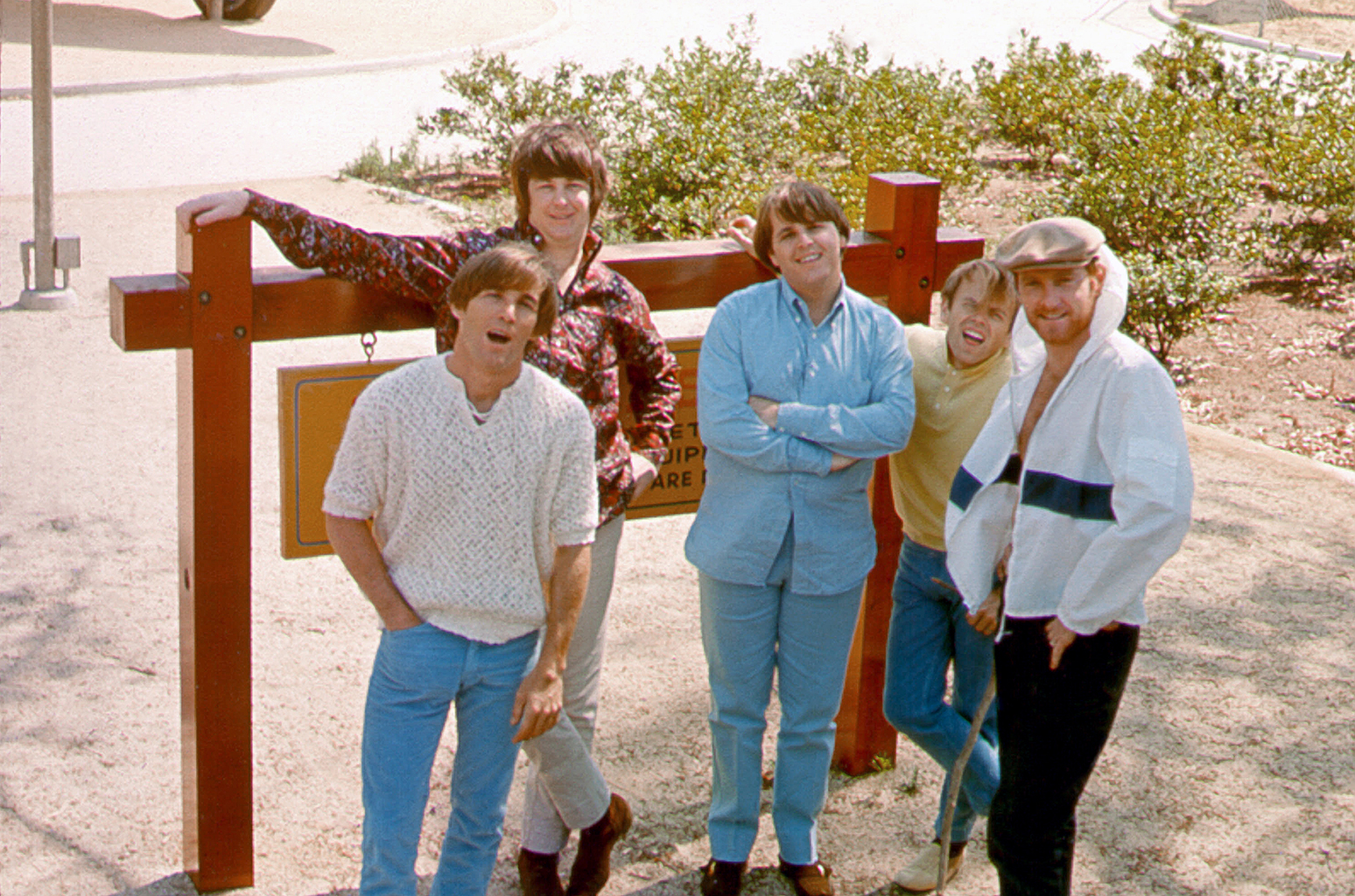
Wilson Phillips, Kenny Loggins, David Pack of Ambrosia and more are set to perform at a charity concert celebrating the music of Brian Wilson and The Beach Boys on Saturday, Sept. 27 at the Granada Theatre in Santa Barbara.
Wilson Phillips features two of Wilson’s daughters, Carnie and Wendy Wilson, as well as Chynna Phillips, the daughter of John and Michelle Phillips. The concert will also feature Brian Wilson’s grandchildren, so it will spotlight three generations of the Wilson family.
The concert, dubbed An All-Star Tribute to the Music of Brian Wilson & Songs of The Beach Boys, will feature the Folk Orchestra of Santa Barbara. Other guest performers are expected to include The Honeys; former members of The Beach Boys and the Brian Wilson Band; and keyboardist Don Randi (The Wrecking Crew); with appearances by Rosemary Butler (Jackson Browne), Ken Stacey (Elton John), Hunter Hawkins (Kenny Loggins), Carly Smithson (American Idol), Alisan Porter (The Voice) and poet Stephen J. Kalinich. These acts will be backed by The Tribe Band, who will perform an array of Beach Boys favorites.
The show begins at 7:30 p.m. Here’s a link for tickets. VIP packages are also available.
Proceeds will be donated to Adam’s Angels, a local group of volunteers, and the Surfrider Foundation of Santa Barbara, dedicated to the protection and enjoyment of the world’s oceans and beaches.
Brian Wilson died on June 11 at age 82. He was the third member of the fabled group to pass, following brothers Dennis in 1983 at age 39 and Carl in 1998 at age 51.
Entertainment
AI Artist Xania Monet, Diddy Sentencing Looms, Ticketmaster Lawsuit & More Music Law News

THE BIG STORY: If you needed another clear sign that artificial intelligence is seeping into every aspect of American cultural life, here’s one: An AI artist just signed a record deal, the hallowed milestone of success for any emerging musician.
As first reported by Billboard last week, Xania Monet — the avatar of a woman named Telisha Jones who writes her own lyrics but uses Suno to create the music — inked a record contract worth millions. The deal has quickly become the talk of the industry, including from stars who have spoken out, including Kehlani, who said: “I don’t respect it.”
But…what exactly is a label buying here? It remains unclear the extent to which you can secure intellectual property rights to AI-generated songs, raising hurdles for monetizing them. And platforms like Suno are still facing trillion-dollar infringement lawsuits that essentially claim the technology itself is illegal. For more, go read our full story.
You’re reading The Legal Beat, a weekly newsletter about music law from Billboard Pro, offering you a one-stop cheat sheet of big new cases, important rulings and all the fun stuff in between. To get the newsletter in your inbox every Tuesday, go subscribe here.
Other top stories this week…
BLIGE CASE TOSSED – A federal judge dismissed a lawsuit against Universal Music Group claiming Mary J. Blige’s enduring 1992 hit “Real Love” infringed the oft-sampled 1973 funk song “Impeach the President” by the Honey Drippers, which has been used by Run-DMC, Dr. Dre, Doja Cat and many others over the years. The judge said the two songs were so different that nobody would hear the earlier song: “The songs do not sound the same.”
DIDDY SENTENCING – Attorneys for Sean “Diddy” Combs urged a federal judge to sentence him to just 14 months in prison on his prostitution convictions, asking him to reject the kind of “draconian” punishment sought by prosecutors. Because the star has already served 13 months in jail since he was arrested, that sentence would see him released almost immediately: “It is time for Mr. Combs to go home.”
LETTERS OF SUPPORT – To help make that argument, Diddy’s lawyers filed dozens of letters from supporters, pleading with the judge to show lenience toward the rapper when he sentences him next month. They came from Diddy’s mother and kids, from ex-girlfriend Yung Miami and from an executive at hip-hop label Quality Control Music — among many others.
SUNO SUIT 2.0 – Separate from the Xania Monet situation, the major record labels filed an amended version of their copyright lawsuit against the AI music firm, adding new allegations that the company illegally “stream-ripped” songs from YouTube to train its models. That’s a hugely important new claim: In a separate such lawsuit against Anthropic, a federal judge ruled this summer that AI training itself is likely a legal “fair use” but that using pirated works to do it could lead to many billions in potential damages.
FTC, YEAH YOU KNOW ME – The Federal Trade Commission filed a lawsuit against Live Nation and Ticketmaster accusing the concert giants of advertising misleading ticket prices and allowing scalpers to buy up tickets and resell them at inflated prices. The case came months after the agency sued a ticket broker that allegedly used thousands of fake Ticketmaster accounts to buy and resell tickets to Taylor Swift concerts and other events — and two years after Live Nation was hit with a sweeping monopoly lawsuit by the U.S. Department of Justice.
HYPE VID SETTLEMENT – Mike Tyson settled a lawsuit claiming he illegally used the Jay-Z, DMX and Ja Rule song “Murdergram” in an Instagram video promoting his boxing match against Jake Paul. The case was filed by Ty Fyffe, a producer and co-writer of the 1998 track who claimed that Tyson had willfully infringed his copyrights by using the song in a training video ahead of his much-hyped fight with Paul.
LOSE YOUR … CASE? – Meta urged a federal judge to dismiss a lawsuit from Eight Mile Style, a music publisher that owns hundreds of Eminem songs, which claims the social media giant made “Lose Yourself” and other iconic tracks available to billions of users. In the motion, Facebook’s lawyers argued the case was “remarkably short on specifics” about actual infringing material: “Fanciful estimates are not a substitute for well-pleaded facts,” the company wrote.
NEVER MEANT TO CAUSE YOU ANY PAIN – The Prince estate asked a judge to dismiss a lawsuit by the late singer’s Purple Rain co-star Apollonia (Patty Kotero) that claims the estate is trying to “steal” her name, arguing it has no intention of forcing her to change her name — and has repeatedly told her as much. The filing did say, however, that Apollonia secured her own trademarks during “the chaotic period following Prince’s death.”
SEX TAPE LEAK CASE – Colombian pop star Beéle was hit with a lawsuit alleging invasion of privacy and sexual cyberharassment from ex-girlfriend Isabella Ladera, claiming he is responsible for leaking their sex tape. Beéle’s reps have denied that he was the source of the leak and said the singer is “also a victim,” but Ladera’s lawsuit placed the blame squarely on him: “Only two people had the videos, and Ladera had already erased them almost a year and a half before.”
MEGAN THEE PLAINTIFF – Lawyers for Megan Thee Stallion argued in court filings that the social media personality DJ Akademiks must reveal whether Tory Lanez sent him a confidential DNA testing report during the singer’s criminal case. The filings came amid discovery in a defamation case against Milagro Gramz, a gossip blogger and ardent online defender of Lanez.
-

 Entertainment6 months ago
Entertainment6 months agoNew Kid and Family Movies in 2025: Calendar of Release Dates (Updating)
-

 Entertainment3 months ago
Entertainment3 months agoBrooklyn Mirage Has Been Quietly Co-Managed by Hedge Fund Manager Axar Capital Amid Reopening Drama
-
Tech6 months ago
The best sexting apps in 2025
-

 Entertainment5 months ago
Entertainment5 months agoKid and Family TV Shows in 2025: New Series & Season Premiere Dates (Updating)
-

 Tech7 months ago
Tech7 months agoEvery potential TikTok buyer we know about
-
Tech7 months ago
iOS 18.4 developer beta released — heres what you can expect
-

 Tech7 months ago
Tech7 months agoAre You an RSSMasher?
-

 Politics7 months ago
Politics7 months agoDOGE-ing toward the best Department of Defense ever





